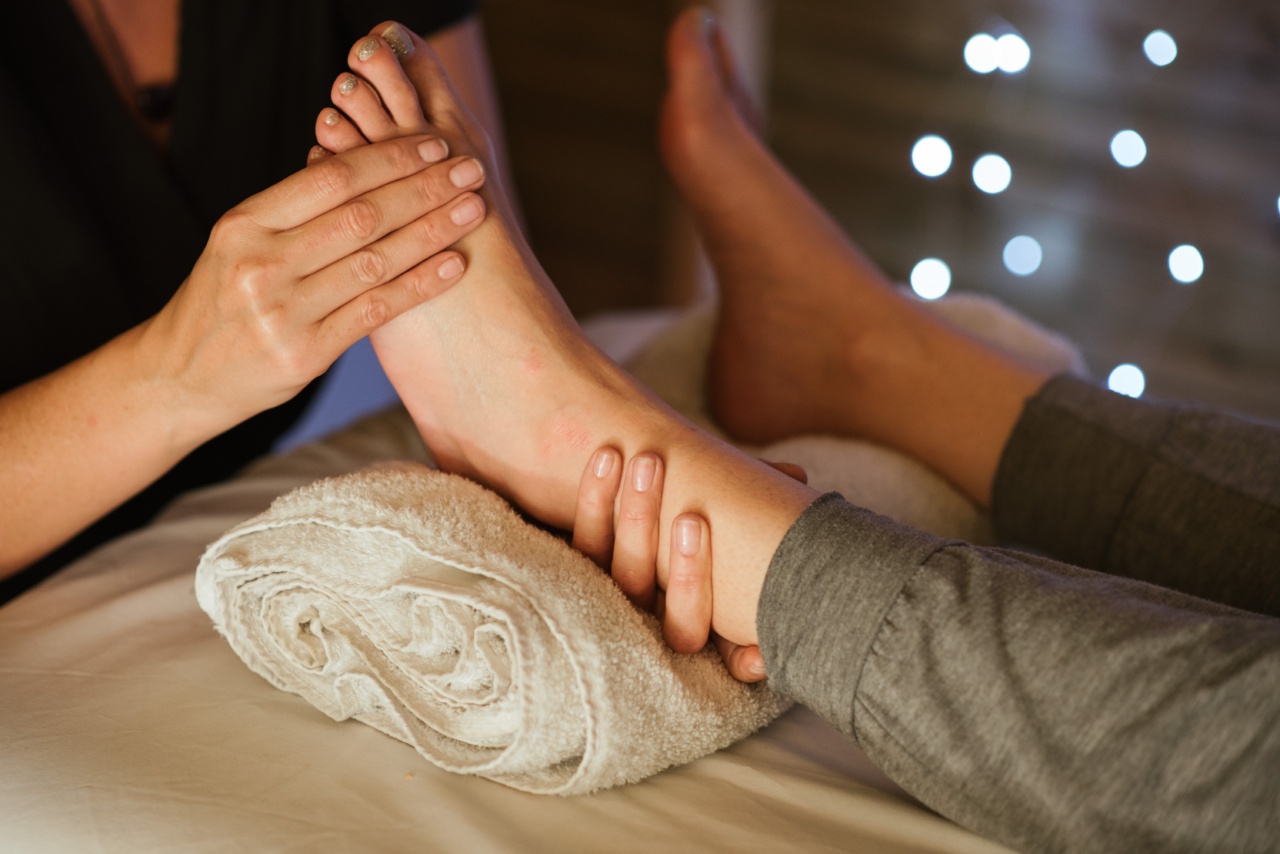Foot and genital fungi are common conditions that affect many individuals worldwide. These fungal infections can lead to discomfort, itching, and pain if left untreated.
However, with proper prevention and timely treatment, these conditions can be effectively managed. In this article, we will discuss the prevention and treatment recommendations for foot and genital fungi to help you maintain optimal health.
Understanding Foot Fungi
Foot fungi, also known as athlete’s foot or tinea pedis, is a contagious infection caused by various types of fungi. It commonly affects the skin between the toes and the soles of the feet.
The condition is characterized by itching, redness, cracking, and a stinging or burning sensation. To prevent foot fungi:.
1. Keep Your Feet Clean and Dry
Wash your feet daily with mild soap and warm water. Dry them thoroughly, especially between the toes, as moisture can promote fungal growth. Use a clean towel and consider using a separate towel for your feet to minimize the risk of cross-contamination.
2. Wear Breathable Footwear
Choose shoes made of breathable materials such as leather or mesh. Avoid wearing tight-fitting shoes or those made from synthetic materials as they can trap moisture and heat, creating an ideal environment for fungal growth.
3. Use Antifungal Powders or Sprays
Apply antifungal powders or sprays to your feet, especially if you are prone to foot fungi. These products help control fungal growth and keep your feet dry. Look for over-the-counter options that contain ingredients like miconazole or clotrimazole.
4. Change Your Socks Regularly
Wearing clean socks every day is crucial in preventing foot fungi. Opt for moisture-wicking socks that help keep your feet dry. Change your socks more frequently if your feet tend to sweat excessively.
Understanding Genital Fungi
Genital fungi, commonly known as fungal infections or yeast infections, typically occur in the genital area in both males and females. The most common cause is an overgrowth of Candida, a type of yeast.
Here are some prevention and treatment recommendations:.
1. Practice Good Hygiene
Keep the genital area clean and dry. Use mild, fragrance-free soaps and avoid using strong detergents or perfumed products that can disrupt the natural pH balance. After bathing or swimming, make sure to pat the area dry instead of rubbing.
2. Wear Loose-Fitting and Breathable Clothing
Tight clothing and synthetic materials can trap moisture, creating an environment conducive to fungal growth.
Opt for loose-fitting clothing made of natural, breathable fabrics like cotton to allow airflow and reduce moisture build-up in the genital area.
3. Avoid Douching and Harsh Cleansers
Douching and using harsh cleansers can disrupt the natural balance of bacteria and yeast in the genital area, increasing the risk of fungal overgrowth. Stick to gentle cleansing techniques and avoid using scented products in the genital area.
4. Use Over-the-Counter Antifungal Creams
If you experience symptoms of genital fungi, such as itching, redness, or unusual discharge, consider using over-the-counter antifungal creams.
These creams typically contain active ingredients like clotrimazole or miconazole, which can help relieve symptoms and eradicate the infection.
When to Seek Medical Help
In some cases, foot and genital fungi may not respond to home remedies or over-the-counter treatments. It is essential to consult a healthcare professional if:.
1. Symptoms Worsen or Persist
If your symptoms do not improve within a couple of weeks of treatment or worsen despite home remedies, seek medical assistance.
A healthcare provider may recommend stronger antifungal medications or additional treatments to address your condition effectively.
2. Recurrent Infections
If you experience recurrent foot or genital fungal infections, it may indicate an underlying medical condition or a weakened immune system. A healthcare professional can help identify the cause and provide appropriate treatment and preventive measures.
Conclusion
Foot and genital fungi are common conditions that can cause discomfort and significantly impact your well-being.
By following the prevention tips mentioned above and seeking timely treatment, you can effectively manage and eliminate these fungal infections. Remember to maintain good hygiene practices, wear breathable clothing, and seek medical help if needed to ensure optimal health.






























